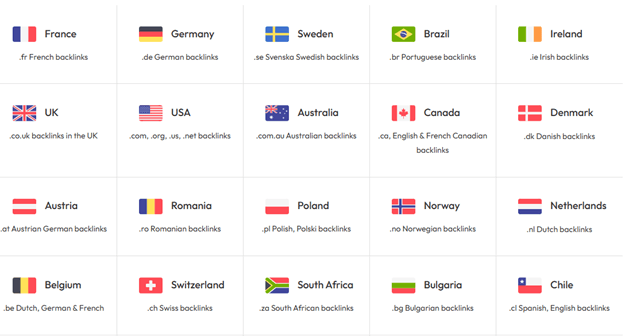Leveraging AI for Effective International SEO Strategies

Leveraging AI for Your SEO Strategy
Artificial Intelligence (AI) offers a multitude of advantages when it comes to enhancing your SEO strategy. One of the most significant benefits is its ability to address regional nuances with ease. Many SEO professionals have begun to harness the power of AI to conduct in-depth analyses of local keywords. This practice provides valuable insights into what their target audience is actively searching for, ultimately leading to a better understanding of consumer behavior. Such insights can significantly improve conversion rates and make investments in SEO more worthwhile. In fact, this is one of the driving factors behind the $15.78 billion that marketers allocated to AI last year.
Moreover, AI can be employed to generate high-quality content, optimized meta descriptions, and compelling titles that are tailored to local users. For businesses operating multilingual websites, AI streamlines the translation process, ensuring that content is accurately and effectively conveyed. Additionally, AI plays a pivotal role in monitoring conversions, making it an indispensable tool for marketers.
Expanding into international markets is an exciting venture; however, it comes with its own set of challenges. International SEO involves navigating language barriers, cultural differences, and technical obstacles such as hreflang tags and geo-targeting. A well-structured strategy can help you avoid pitfalls like irrelevant content presentation, ranking losses, audience alienation, and inefficient use of resources. This is where AI becomes invaluable. The key to overcoming these challenges lies in mastering the technical aspects of international SEO while also addressing the unique regional nuances that affect consumer behavior. Below, we outline how to craft a cohesive, globally optimized SEO strategy.
Understanding the Fundamentals of International SEO
International SEO focuses on optimizing your website to attract organic traffic from various countries and languages. The goal is to ensure that your content resonates with diverse audiences and ranks effectively in local search engine results. Achieving this balance requires not only technical implementation but also a deep understanding of cultural sensitivity—an aspect often overlooked by many businesses.
Challenges in International SEO
Successfully tackling international SEO involves addressing multiple layers of complexity to ensure your strategy resonates on a küresel scale.
1. Language Barriers
Language barriers present a significant challenge in international SEO. Simple translation is insufficient; true localization is essential, as words can carry different meanings across regions.
Key Considerations:
- Use localized keywords to better connect with your audience.
- Collaborate with native speakers to adapt content effectively.
- Implement hreflang tags to guide search engines towards displaying the correct regional version of your site.
2. Cultural Differences
Cultural sensitivity is crucial in international SEO. Elements such as imagery, color choices, and messaging can heavily influence your brand’s appeal in specific regions.
Key Considerations:
- Conduct thorough research on cultural norms and preferences in your target regions.
- Customize visuals and messaging to align with local expectations, ensuring your content resonates deeply.
- Avoid generic content that fails to address the cultural relevance of your target audience.
3. Technical Complexities
The technical aspects of international SEO can seem overwhelming, yet they are vital for delivering optimized experiences tailored for regional users. From structuring URLs to ensuring mobile-first indexing, the technical foundation determines how effectively your website caters to küresel audiences. Recognizing and overcoming these challenges can lead to a seamless and engaging user experience across diverse regions.
Technical Best Practices for International SEO
Implementing the right technical strategies is essential for ensuring the effectiveness and user-friendliness of your international SEO efforts.
1. Hreflang Implementation
Hreflang tags are crucial for indicating to search engines which language and regional version of a webpage should be shown to users. Incorrect implementation can result in duplicate content issues, a poor user experience, and weakened rankings.
Best Practices:
- Incorporate hreflang annotations in your HTML header or sitemap.
- Ensure that every page in a given language links back to all other versions.
- Regularly audit your hreflang tags to identify and rectify errors or missing annotations.
2. URL Structure
Choosing the right URL structure is crucial for targeting specific regions. The three primary options are:
- ccTLDs (e.g., example.fr): Ülkü for strong regional targeting but can be costly to maintain.
- Subdirectories (e.g., example.com/fr/): Easier to manage but less explicit in terms of targeting.
- Subdomains (e.g., fr.example.com): Flexible but may lead to confusion regarding brand identity.
Essential Tip: Choose a structure that aligns with your budget, meets audience needs, and supports your branding strategy.
3. Geo-Targeting
Geo-targeting ensures that users are directed to the appropriate version of your site based on their geographical location. Tools like Google Search Console can be utilized to specify regional targeting settings for subdomains or subdirectories.
4. Mobile-First Indexing
Mobile devices dominate many emerging markets, making it crucial for users to have access to mobile-friendly websites that rank well on search engines.
Best Practices:
- Employ responsive web design to accommodate various screen sizes.
- Optimize image sizes and minimize page load times.
- Test your site across devices commonly used in your target regions.
By adhering to these technical best practices, you can create a seamless and optimized user experience across different regions.
Integrating Cultural and Technical Strategies for International SEO
Achieving success in international SEO requires a harmonious blend of technical expertise and cultural awareness. To effectively engage with diverse audiences and enhance regional rankings, consider the following strategies:
- Leverage Analytics: Monitor region-specific user behavior to refine your content and boost audience engagement.
- Analyze Local Competitors: Identify gaps in their strategies and reveal unique opportunities to surpass them in search rankings.
- Stay Current with Trends: Regularly update localized content to align with shifting regional preferences and search algorithm changes.
One of the most impactful tactics is multilingual link building—earning backlinks from authoritative websites within your target regions. This strategy not only bolsters your domain’s credibility but also enhances visibility in localized search results, paving the way for long-term SEO success.
Challenges to Watch For
Despite having a strong plan, challenges in international SEO such as duplicate content, cultural mismatches, and technical issues may still arise. Regular monitoring, audits, and user feedback are crucial for addressing these challenges effectively.
What’s the Bottom Line?
International SEO entails a delicate balance of technical expertise and cultural sensitivity. By mastering elements such as hreflang implementation, URL structure, and multilingual link building, while also addressing language and cultural differences, businesses can establish a robust küresel presence. The key to success lies in understanding the unique needs of each region and crafting experiences that resonate both technically and culturally. Begin optimizing your strategy today to connect with audiences across borders—one region at a time.






